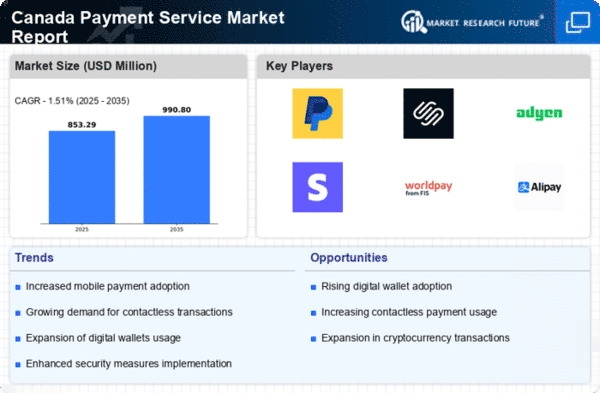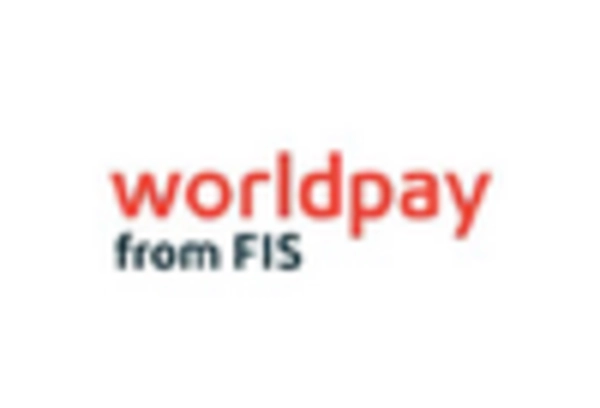Rise of Fintech Startups
The emergence of fintech startups in Canada is reshaping the payment service market landscape. These innovative companies are leveraging technology to offer unique payment solutions that challenge traditional banking models. In 2025, it is anticipated that fintech firms will capture a substantial share of the payment service market, driven by their agility and customer-centric approaches. This influx of competition compels established players to rethink their strategies and enhance their service offerings. The payment service market must adapt to this dynamic environment by fostering partnerships with fintechs or investing in their own technological advancements to remain competitive and relevant.
Growing E-commerce Adoption
The surge in e-commerce activities in Canada is a pivotal driver for the payment service market. As consumers increasingly prefer online shopping, the demand for seamless payment solutions has escalated. In 2025, e-commerce sales in Canada are projected to reach approximately $60 billion, reflecting a growth rate of around 15% annually. This trend necessitates the development of efficient payment processing systems that can handle high transaction volumes while ensuring user satisfaction. Consequently, payment service providers are compelled to innovate and enhance their offerings to cater to the evolving needs of online retailers and consumers alike. The payment service market must adapt to these changes to remain competitive and relevant in a rapidly digitizing economy.
Consumer Demand for Convenience
The increasing consumer demand for convenience is a significant driver of the payment service market. Canadians are seeking faster, more efficient payment methods that simplify their purchasing experiences. This trend is evident in the rising popularity of mobile wallets and one-click payment solutions, which allow for quick transactions without the need for extensive input. In 2025, it is estimated that nearly 40% of Canadians prefer using mobile payment options for their everyday purchases. As a result, the payment service market must prioritize user-friendly interfaces and streamlined processes to meet these consumer expectations, thereby enhancing overall satisfaction and loyalty.
Regulatory Compliance and Standards
The payment service market in Canada is significantly influenced by regulatory frameworks and compliance requirements. The Canadian government, along with financial regulatory bodies, has established stringent guidelines to ensure consumer protection and data security. For instance, the implementation of the Payment Card Industry Data Security Standard (PCI DSS) mandates that payment service providers adhere to specific security protocols. Non-compliance can result in hefty fines and loss of consumer trust, which could adversely affect market players. As such, the payment service market must invest in compliance measures and technologies to align with these regulations, thereby fostering a secure environment for transactions and enhancing consumer confidence.
Technological Advancements in Payment Solutions
Technological innovation plays a crucial role in shaping the payment service market. The advent of contactless payments, mobile payment applications, and blockchain technology has transformed how transactions are conducted. In Canada, the adoption of contactless payment methods has surged, with over 50% of Canadians using tap-to-pay options in 2025. This shift towards advanced payment solutions necessitates that service providers continuously upgrade their systems to incorporate the latest technologies. The payment service market is thus driven by the need to enhance transaction speed, security, and user experience, which are essential for maintaining competitiveness in a tech-savvy consumer landscape.

















